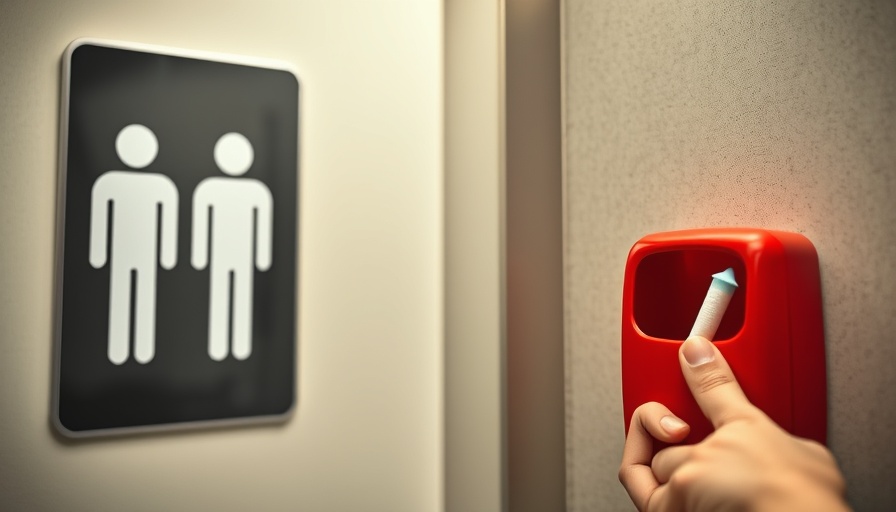
The Bold Proposal: A Step Towards Inclusivity
The recent proposal from Baltimore to provide menstrual products in men's bathrooms has sparked a conversation about accessibility and inclusivity that transcends traditional gender norms. City Councilman Zeke Cohen has asserted that access to menstrual products should be regarded as essential as access to soap or toilet paper. This progressive move is indicative of a broader trend where conversations surrounding menstruation are becoming less stigmatized, with a focus on equitable access for all individuals who experience menstruation.
Understanding Menstrual Equity
Menstrual equity refers to the belief that all individuals should have access to menstrual products, regardless of their socioeconomic status or gender identity. The idea of placing these products in men's restrooms highlights a growing recognition that menstruation is not solely a women's issue; many transgender and non-binary individuals also require these products. This proposal not only addresses practical needs but also seeks to challenge prevailing stigmas that surround menstruation.
Social Connections: Why This Matters
The conversation surrounding menstrual products in men’s restrooms is a significant cultural shift. It reflects a growing acknowledgment of the needs of transgender and non-binary people, who may feel uncomfortable or unsafe accessing menstrual products in traditionally gendered spaces. By normalizing the presence of menstrual hygiene products in all restrooms, cities can create a more inclusive and supportive environment for everyone.
A Look at Historical Context
Historically, discussions surrounding menstruation have often been taboo, marked by stigma and misinformation. This has led many individuals to face shame or embarrassment when needing menstrual care. Initiatives like Baltimore's aim to dismantle these outdated perceptions. As societal attitudes evolve, cities that adopt such measures serve as role models, illustrating how policies can support more inclusive practices in public health.
Future Implications and Opportunities
As more municipalities consider similar measures, the potential benefits extend beyond individual comfort—aspects of public health, social equity, and gender inclusivity will also see advancements. Access to menstrual products in every restroom reinforces the idea that menstruation should not be a hidden or embarrassing topic, empowering individuals to take care of themselves without stigma.
Diverse Perspectives: Who Benefits?
While the focus is primarily on inclusivity for transgender men and non-binary individuals, providing menstrual products in all restrooms can greatly benefit all users. Many women may find themselves in urgent need of these products and unable to find an adequately equipped restroom. Additionally, persons who may not traditionally identify with these issues could learn valuable insights through exposure, fostering understanding and empathy across various demographics.
Addressing Common Misconceptions
One common misconception is that providing menstrual products in men’s bathrooms would create discomfort or backlash. However, studies indicate that a majority support policies that promote inclusivity and access to menstrual hygiene. The fear that such measures would impose a burden is often disproportionate to the actual benefits provided—namely, enhanced accessibility and reduction of stigma.
Practical Insights: Implementing Change
For cities looking to implement similar measures, it’s crucial to engage with community leaders, public health experts, and local residents. Transparency in what's being provided, along with educational campaigns highlighting the importance of menstrual equity, can help normalize this initiative.
Conclusion: Why Action is Essential
The movement to place menstrual products in all restrooms is more than just a logistical change; it's a step towards fostering an inclusive society where everyone's needs are acknowledged. As Baltimore leads this charge, it is crucial to recognize the ripple effect such a policy could have across the nation.
 Add Element
Add Element  Add Row
Add Row 



 Add Row
Add Row  Add
Add 


Write A Comment